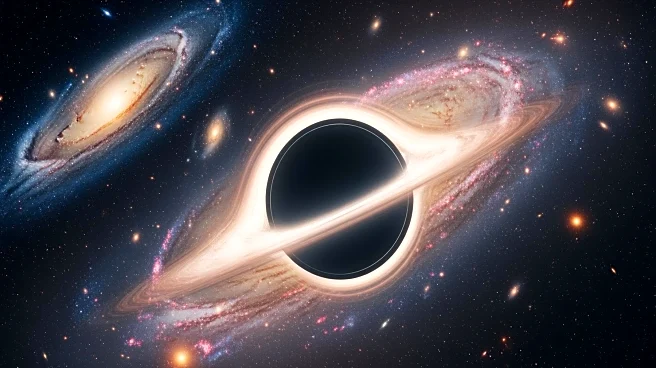What's Happening?
Christopher Nolan's films, particularly 'Interstellar' and 'The Prestige', have garnered significant attention from physicists for their engaging portrayal of scientific concepts. Nolan, who directed the 2023
film 'Oppenheimer', attributes his interest in physics to early exposure to science fiction through 'Star Wars' and Carl Sagan's 'Cosmos'. 'Interstellar' explores themes of space, time, and parallel universes, while 'The Prestige' delves into the world of magic and science, featuring a teleportation machine. These films are celebrated for pushing the boundaries of real science and sparking discussions among scientists.
Why It's Important?
Nolan's films have a profound impact on the scientific community by making complex scientific ideas accessible and engaging to a broader audience. They inspire both current and future scientists to explore the possibilities of science fiction in understanding real-world phenomena. The films also highlight the intersection of science and art, demonstrating how storytelling can enhance public interest in scientific topics. This cultural influence can lead to increased support for scientific research and education, benefiting society by fostering a deeper appreciation for science.
What's Next?
Nolan is currently working on 'The Odyssey', a retelling of the Greek epic, set for release in 2026. This project may continue his tradition of integrating scientific themes into storytelling, potentially attracting further interest from the scientific community. As Nolan's films continue to resonate with audiences, they may inspire more filmmakers to explore scientific concepts, contributing to a growing genre of science-based cinema.
Beyond the Headlines
The success of Nolan's films underscores the potential for science fiction to serve as a bridge between scientific communities and the general public. By presenting scientific ideas in an entertaining format, these films can challenge viewers to think critically about the implications of scientific advancements. This cultural shift could lead to more informed public discourse on scientific issues, influencing policy decisions and societal attitudes towards science.












